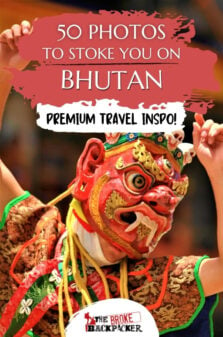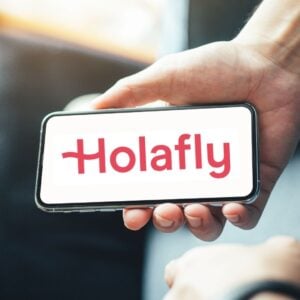Note: This post was originally published in May 2017
Bhutan is simply awesome! I spent seventeen days travelling in Bhutan in 2017 and it was a truly life changing experience. To travel to Bhutan is to step back five hundred years into the past, to discover a quieter pace of life and to reconnect with nature.
In all of my travels, I have never felt so relaxed or chilled out as when I was backpacking in Bhutan – this is a country filled with friendly people, epic mountains, rich history and fascinating traditions.
It’s actually really quite hard to capture Bhutan in an article so I figured rather than tell you about how to visit Bhutan, I could just show you Bhutan.
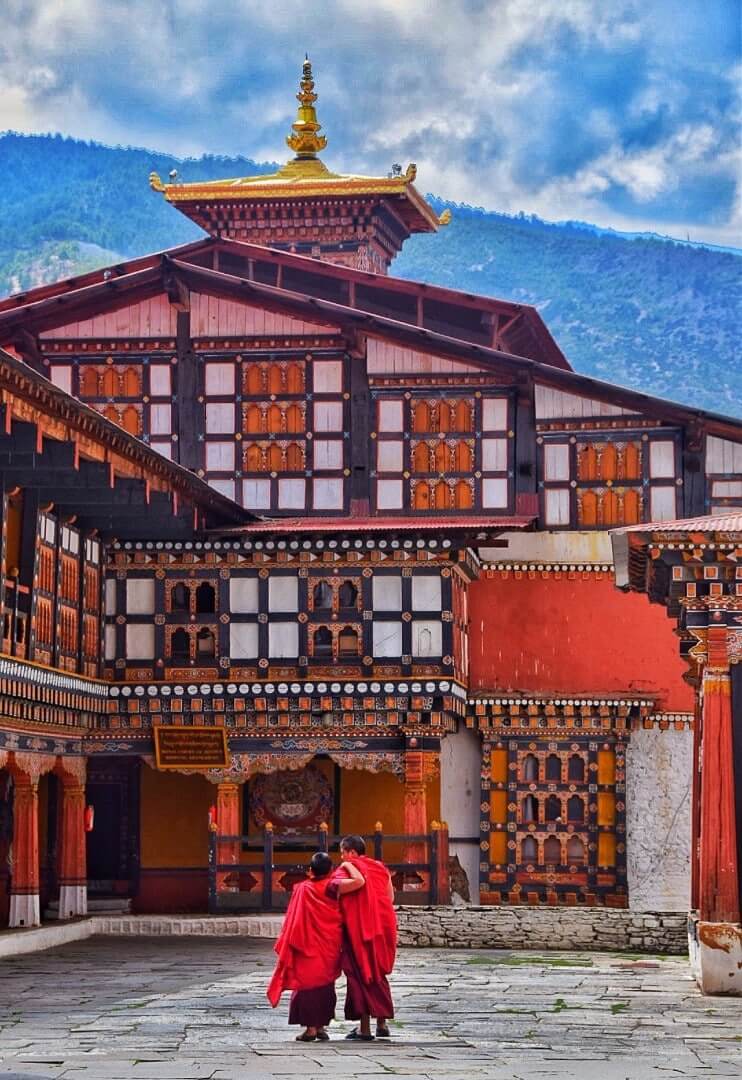
The Broke Backpacker is supported by you. Clicking through our links may earn us a small affiliate commission, and that's what allows us to keep producing free content 🙂 Learn more.
Arriving into Bhutan, the first place I visited was Paro Dzong, an impressive fortress to protect Bhutan from attacks and a place where monks have lived and studied for generations.
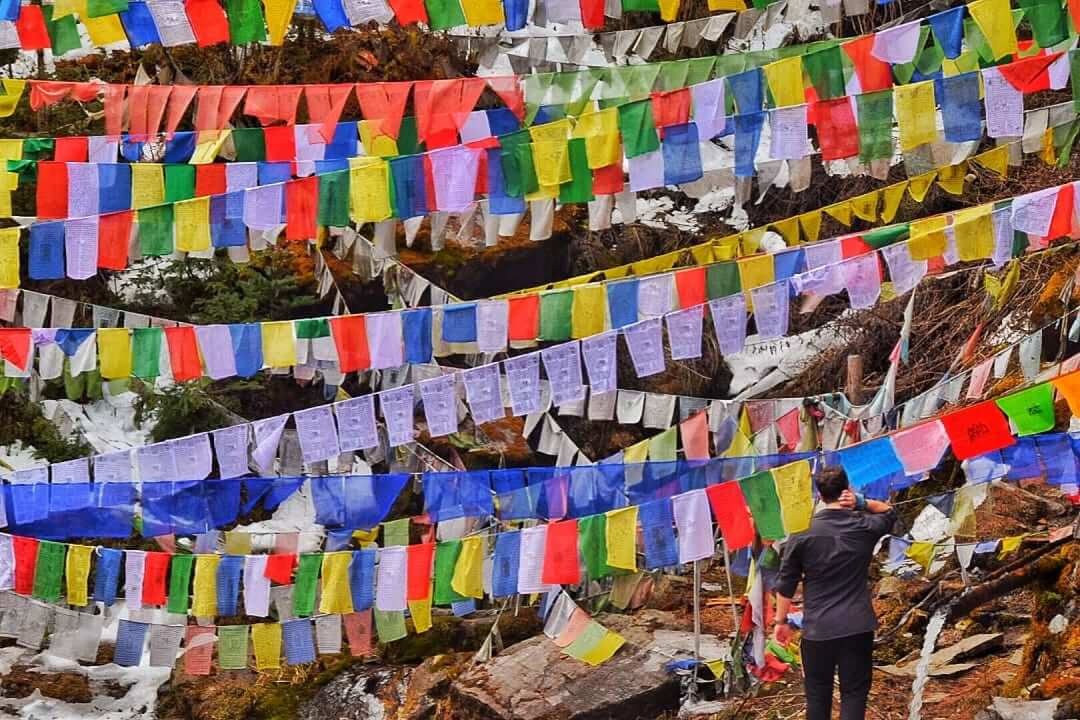
Prayer flags are a pretty big deal in Bhutan, each colour represents a different element, of which The Bhutanese recognise five; air, water, fire, earth and spirit. For more interesting facts about Bhutan, this post is extremely insightful.
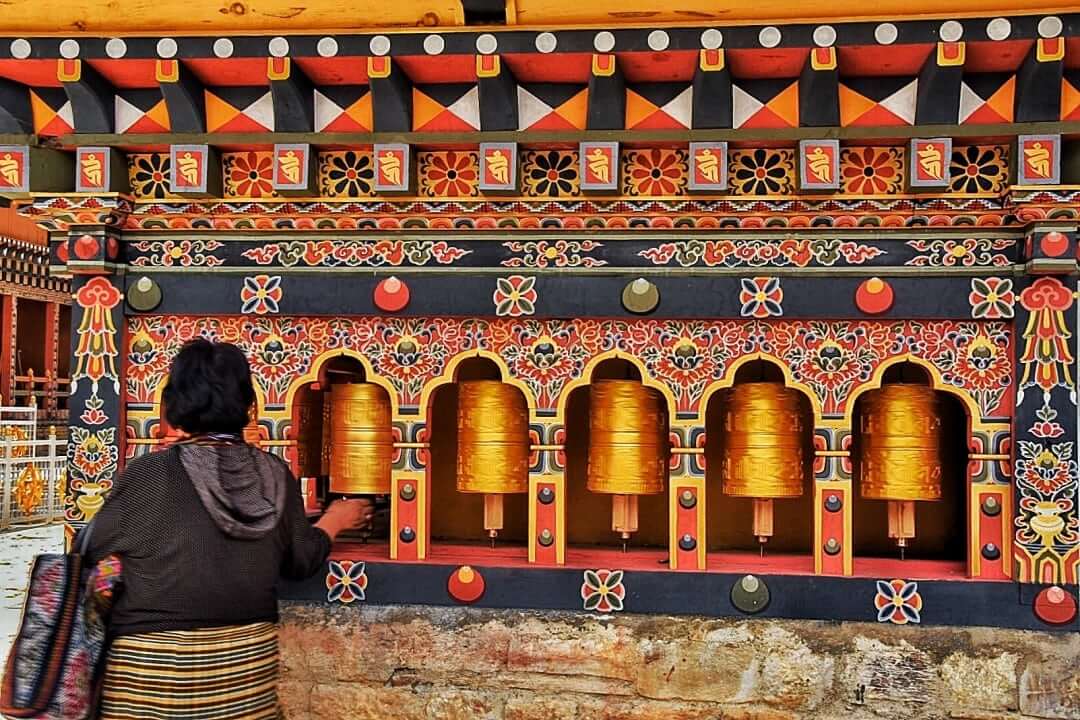
The vast majority of Bhutanese people are Buddhists – here a women speed-prays by turning prayer wheels which house holy scriptures; by turning the wheel the scriptures are considered read.
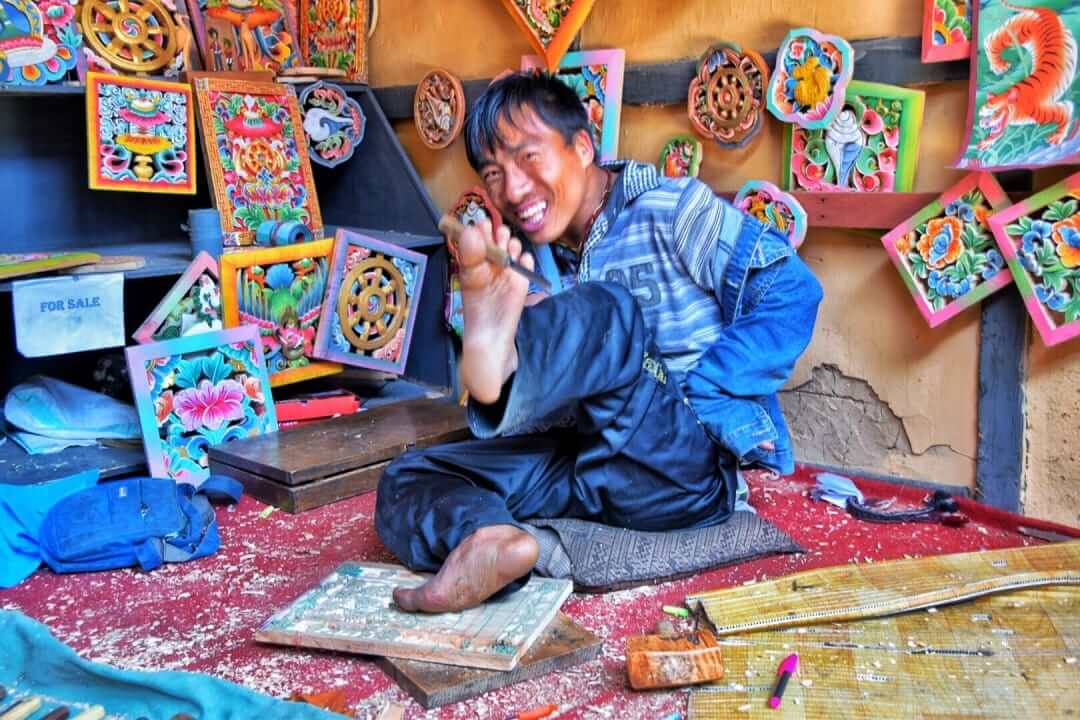
This is Pema Tshering, a skilled and friendly artisan who creates exquisite wood carvings using only his feet. He also once won an archery competition, firing the bow with his feet.
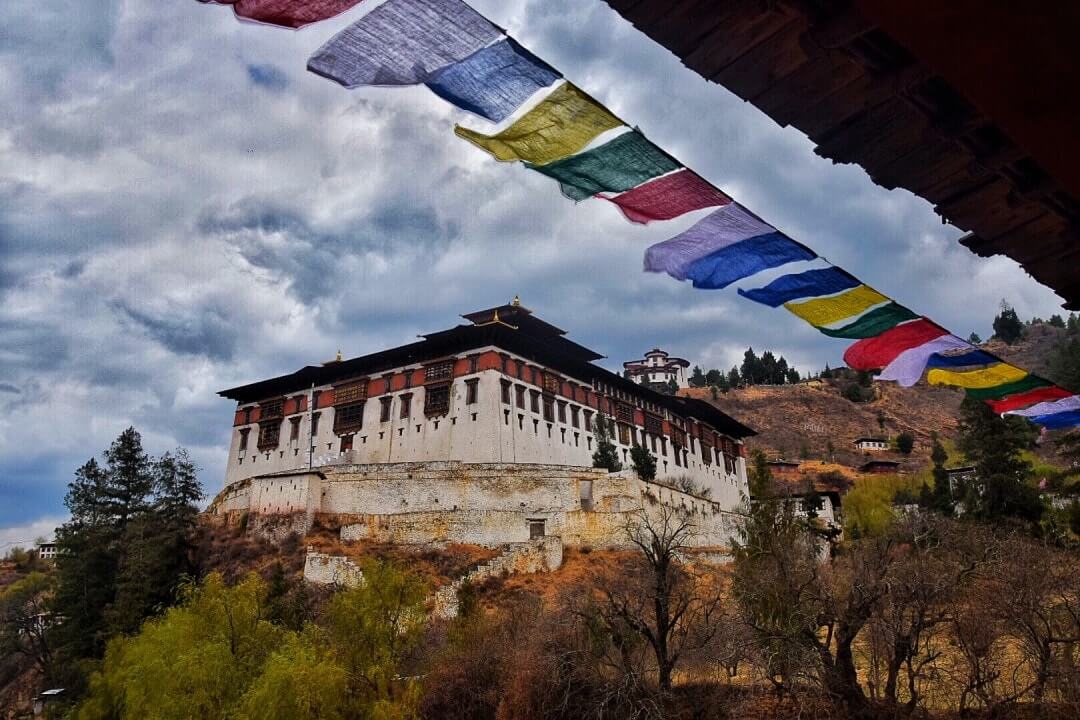
Para Dzong, an imposing white and red fortress against the rolling clouds.
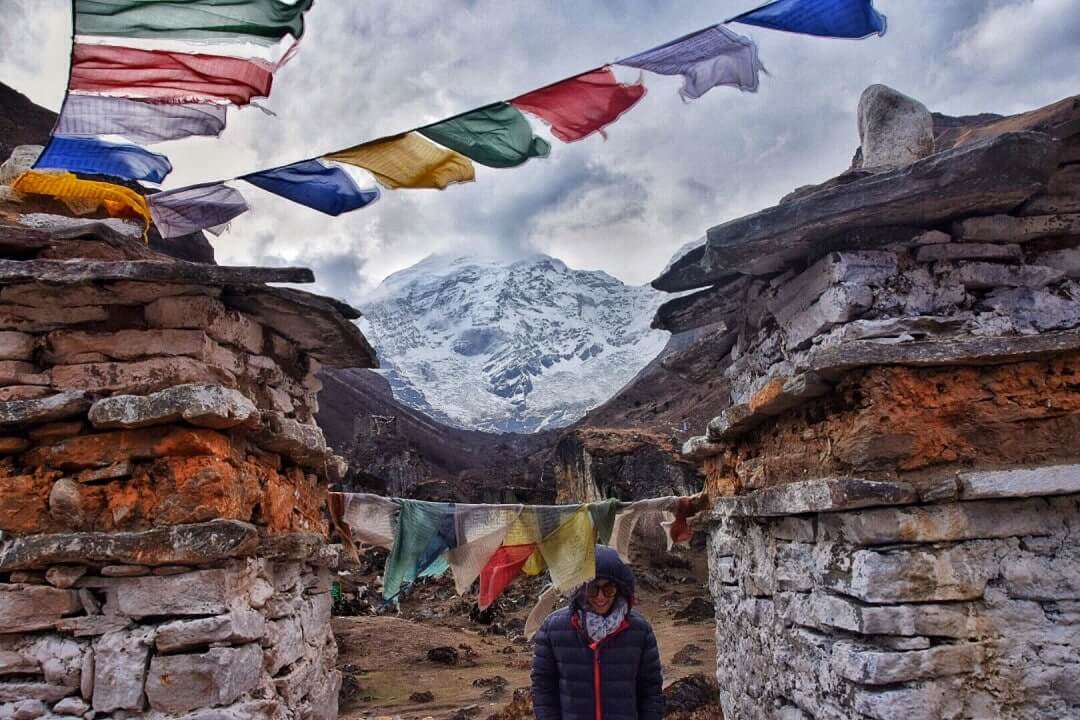
This is Jomalhari, the mother of all Bhutanese mountains and an imposing giant at 7326m.

Punakha Dzong, the most gorgeous of all the Bhutanese Dzongs, stands guard where two rivers meet…
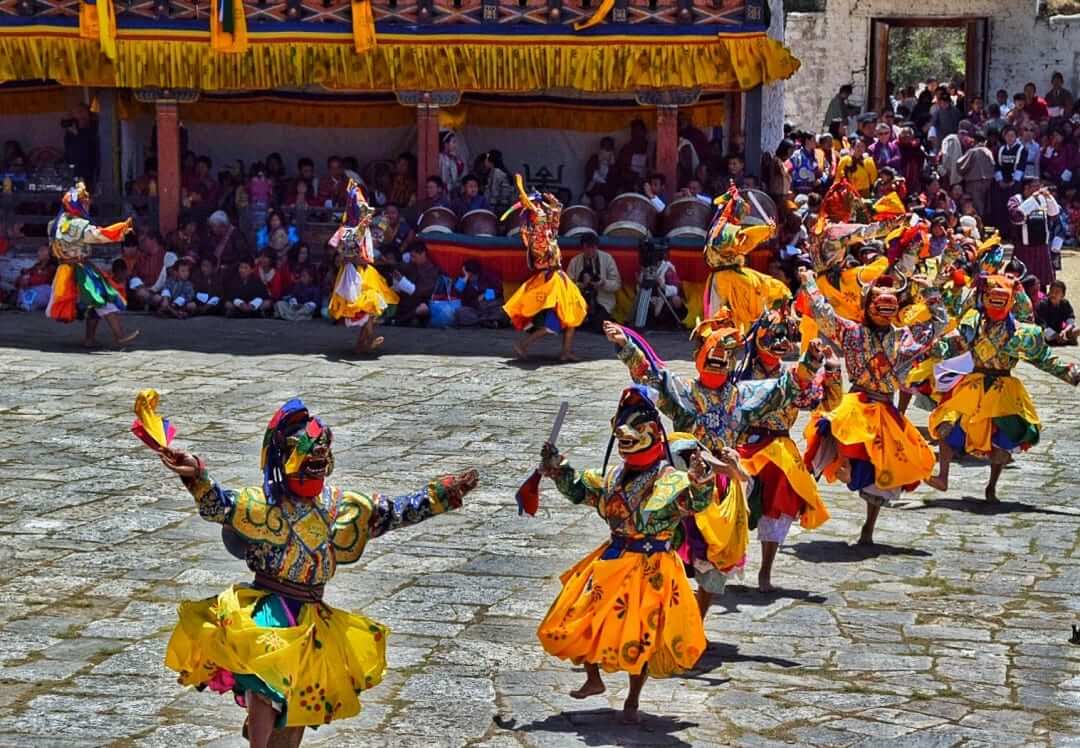
Bhutan is a land of colourful traditions and many festivals in which locals don masks and take on the spirit of the animal or demon depicted.
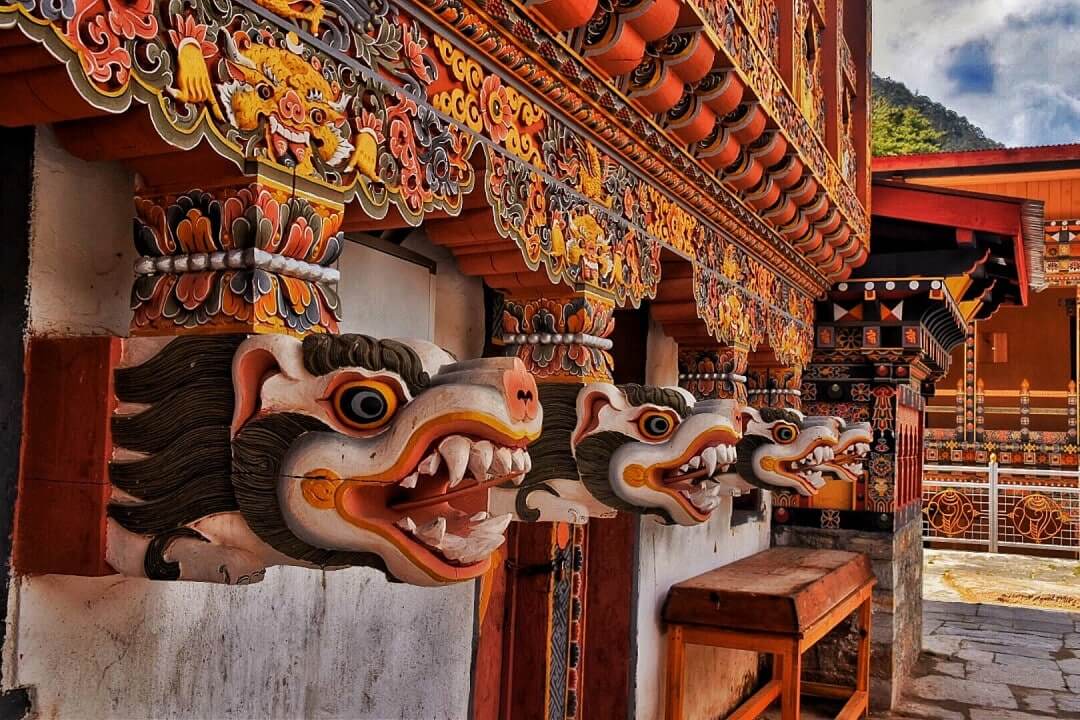
Wolves adorning the inner courtyard of a Dzong – wolves represent royalty in Bhutanese culture.
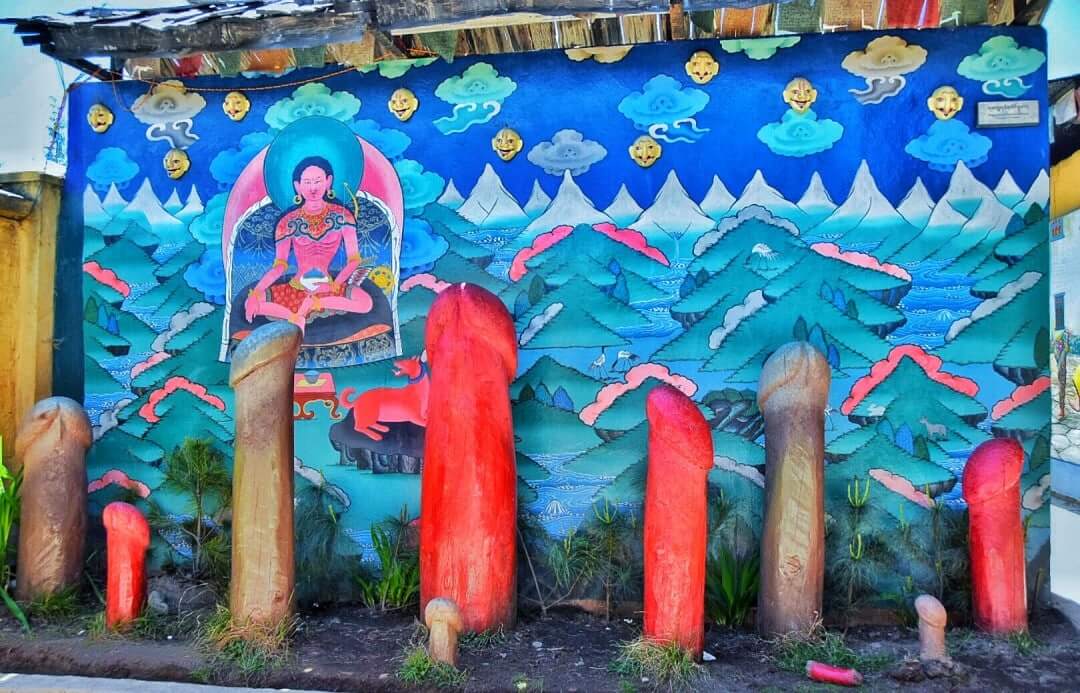
The Bhutanese are very fond of the divine Madman, a guru from Tibet who conquered many demons using his magic thunderbolt (his penis) and also fathered half of Bhutan in the process. Many Bhutanese sculpt or paint penises upon their homes for good luck.
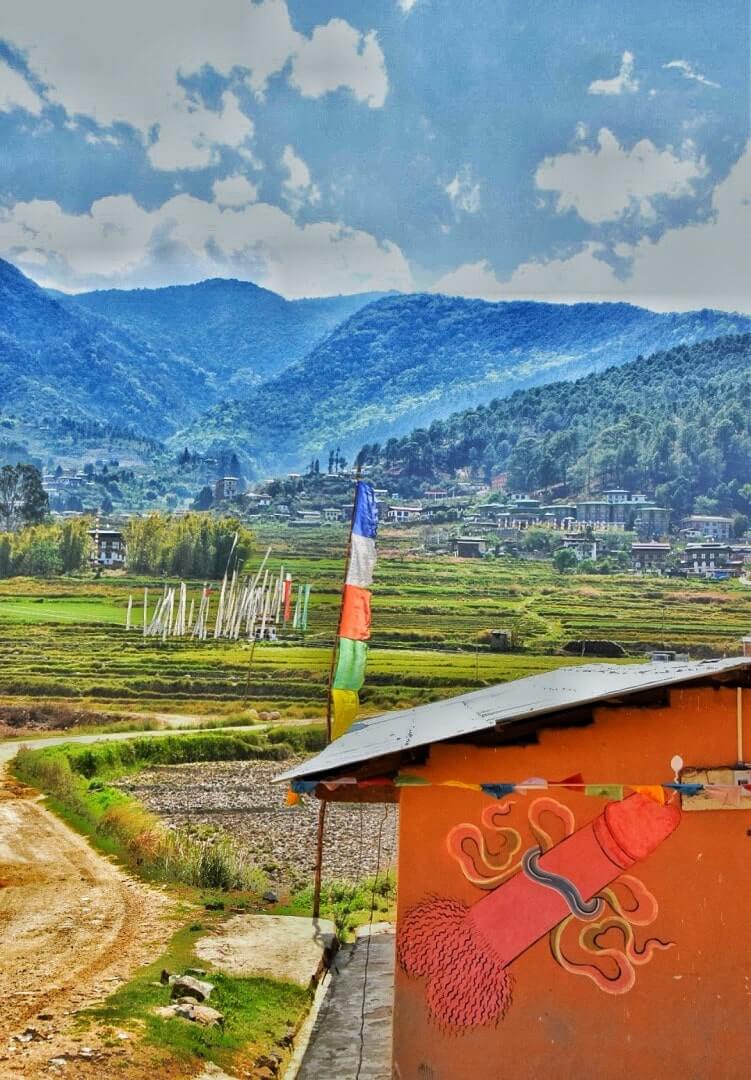
The hairier the penis, the better.
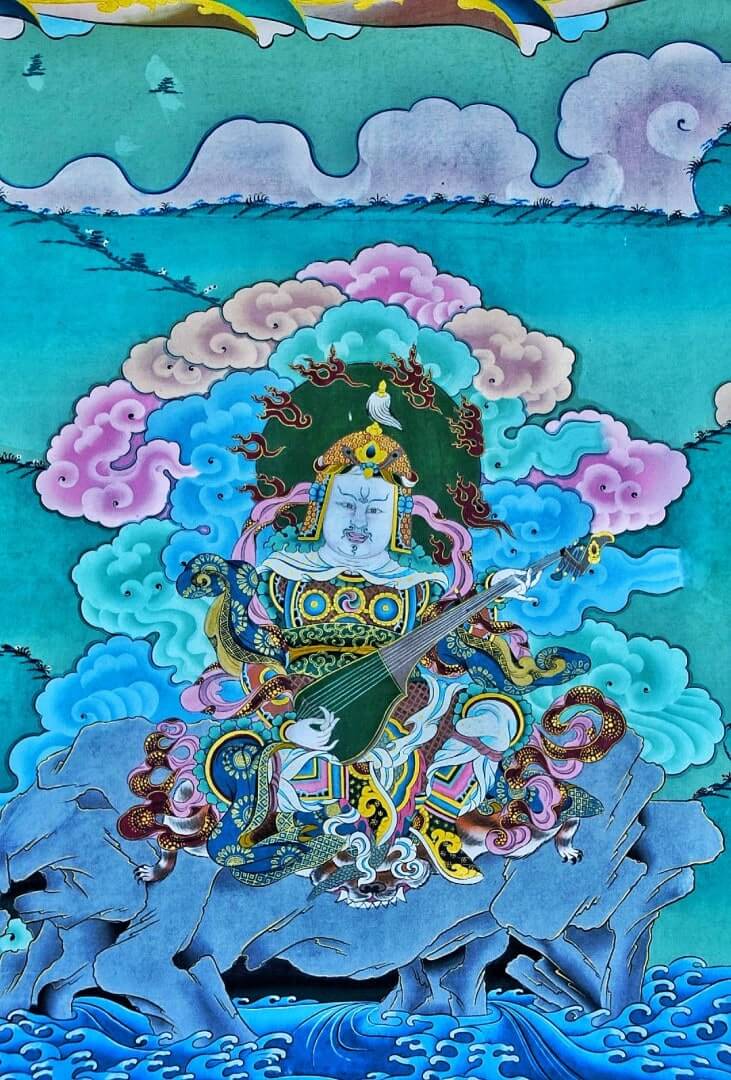
Bhutanese artists paint in a very particular style, known as Thangka – These stunning artworks are mostly found in monasteries and dzongs.
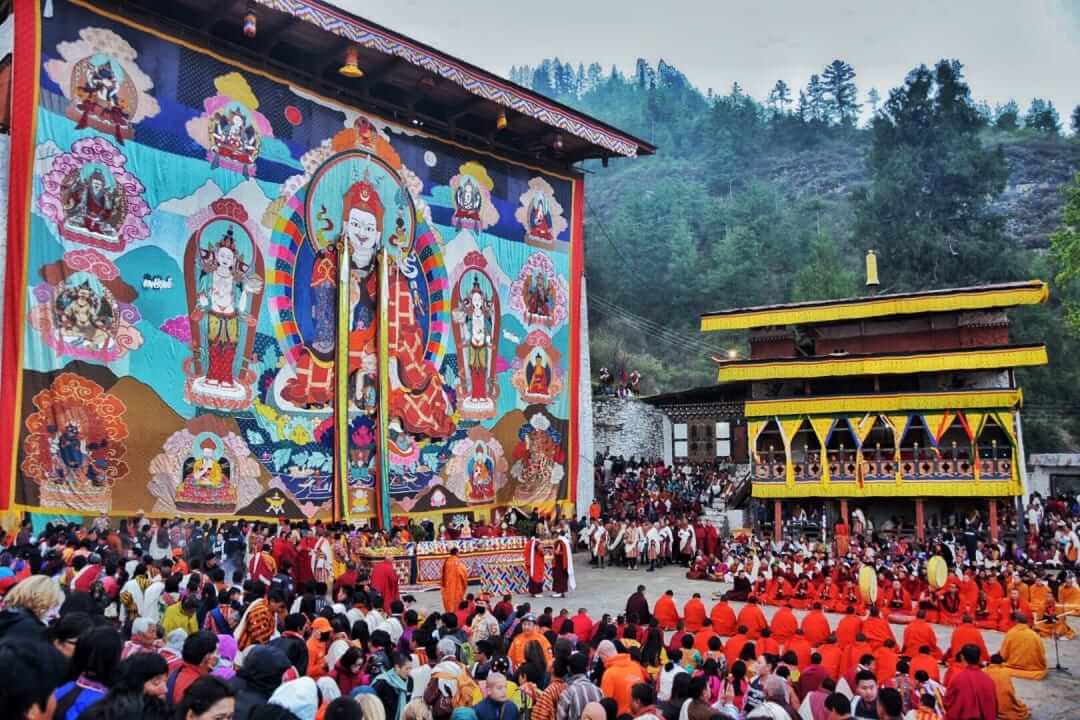
The Mask Ceremony in Paro (Paro Tsechu), an annual event in which features dances performed by trained monks and laymen in amazing masks and costumes.
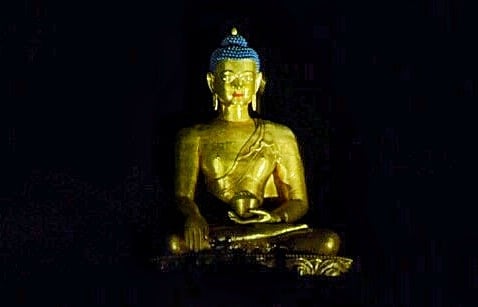
Dordenma Buddha, one of the largest Buddha’s in the world at 169 feet
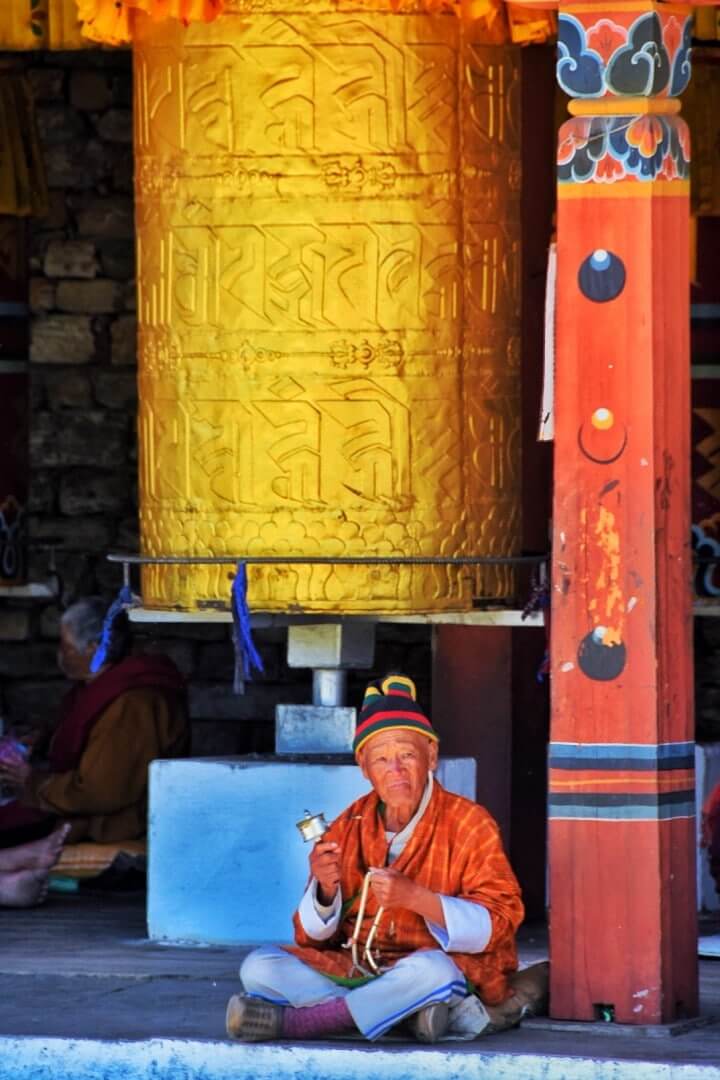
Always turn to the right when praying in Buddhist culture
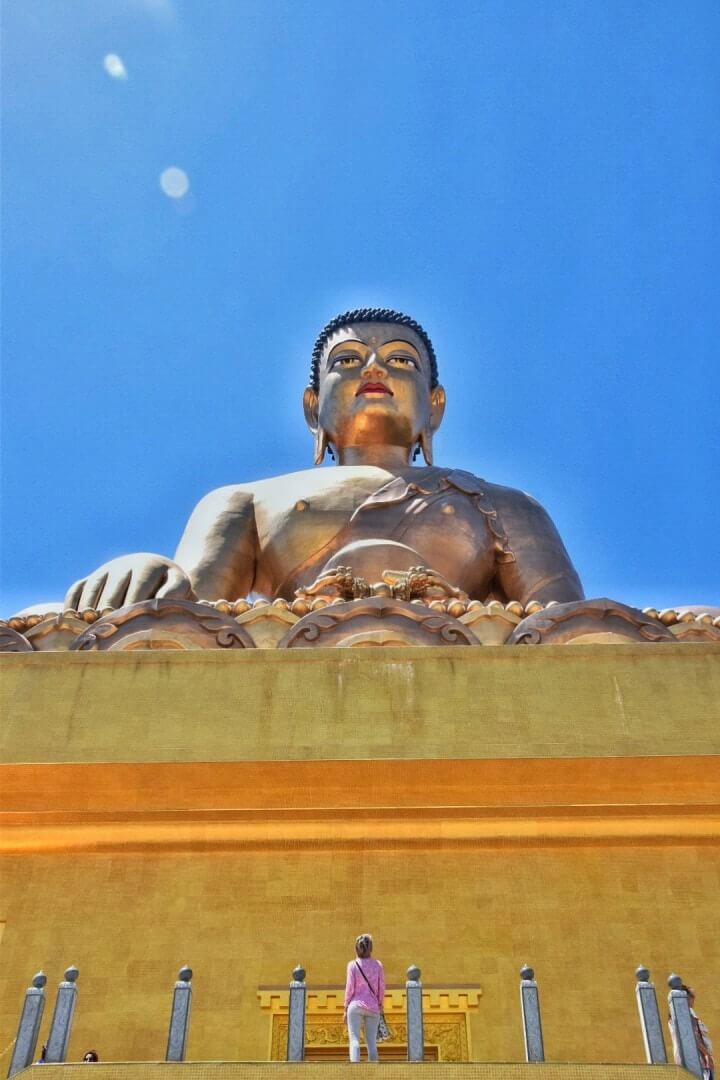
Esme checking out the giant Bronze Buddha
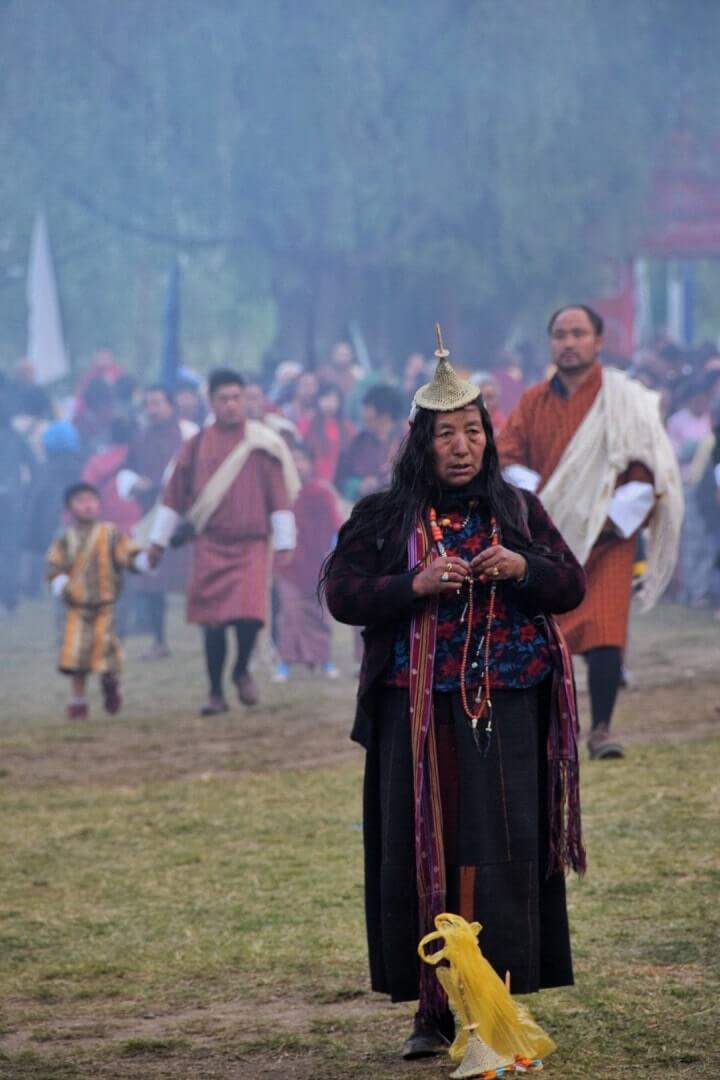
Bhutanese lady sporting the kira and layap, a traditional Buddhist hat. The men in the background are wearing Ghos.
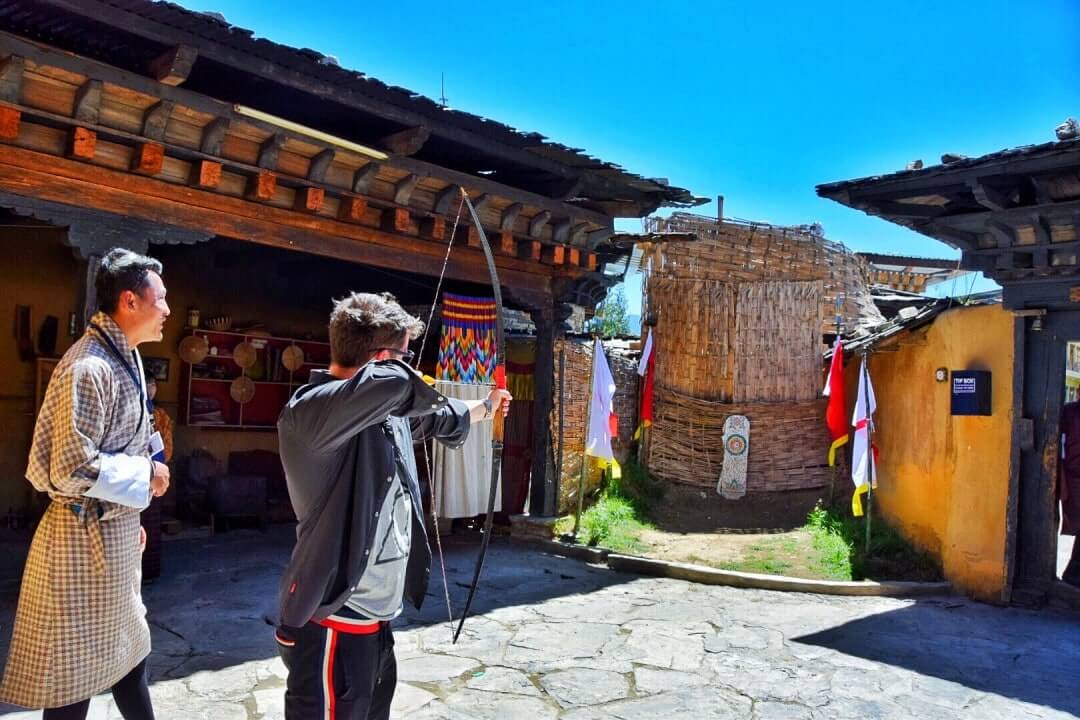
Archery is the national sport of Bhutan
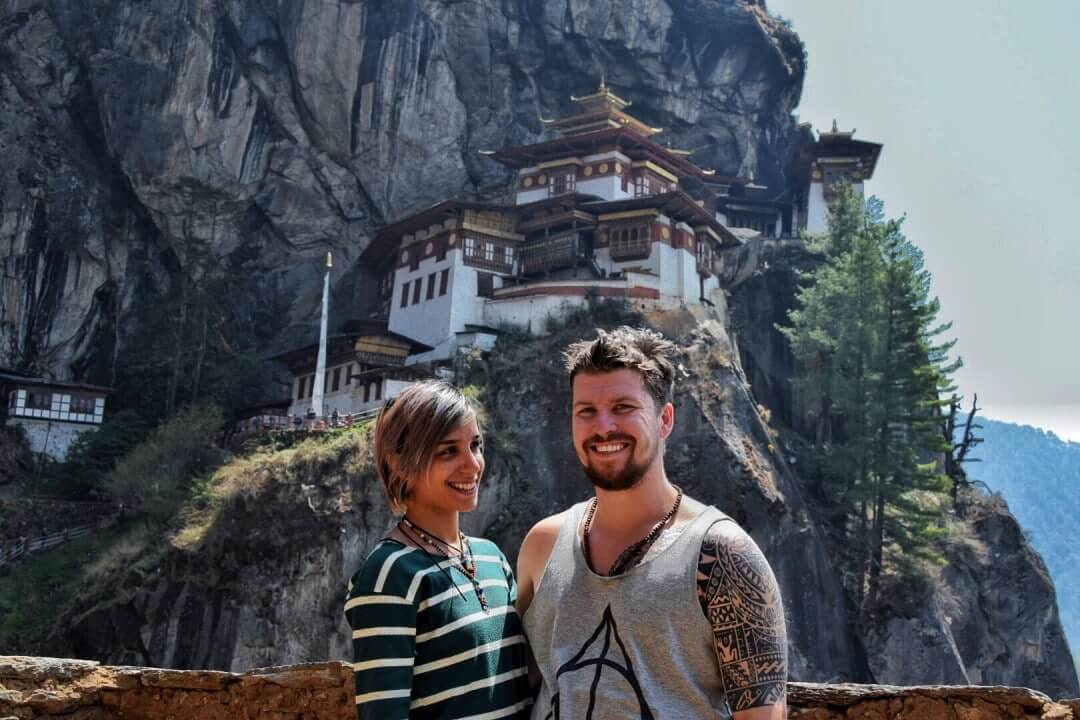
Me and Esme soaking in some epic views on our way to the Tiger’s Nest
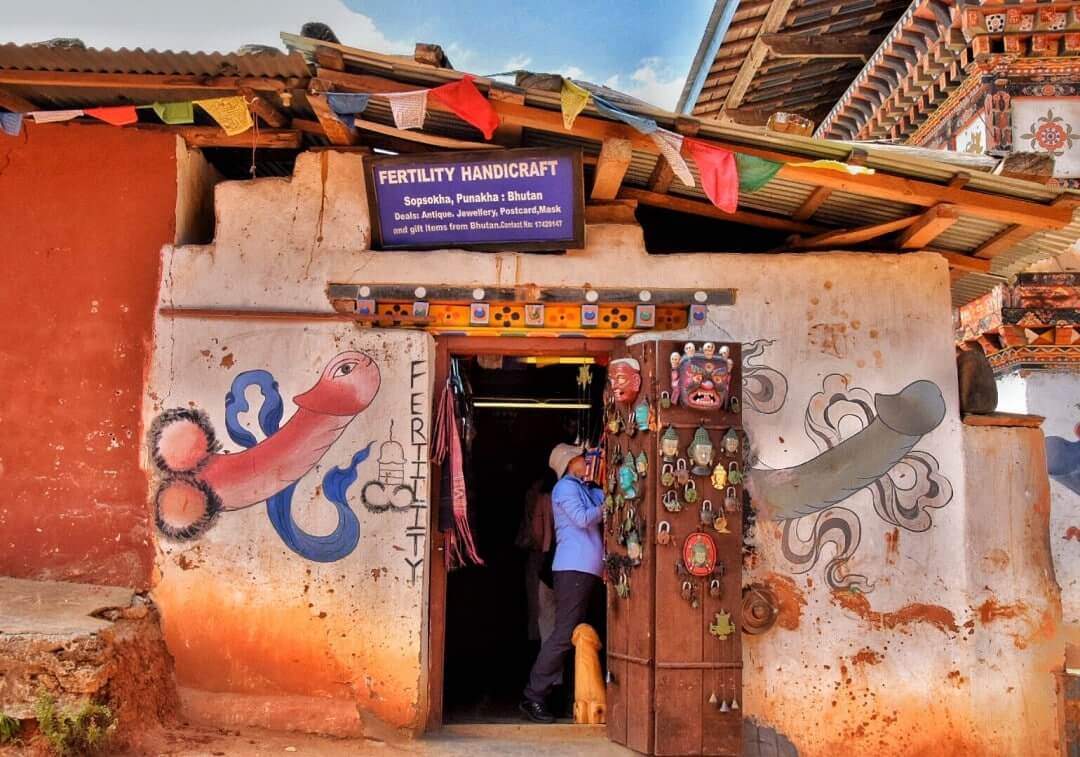
Many folks travel to Bhutan to visit the temple of the Divine Madman. Once here, they carry a large wooden penis around the building three times whilst praying for a child. Devotees then spend a night within the monastery. Inside, I was shown thousands of letters and postcards from previous visitors who had given birth nine months after visiting the temple…
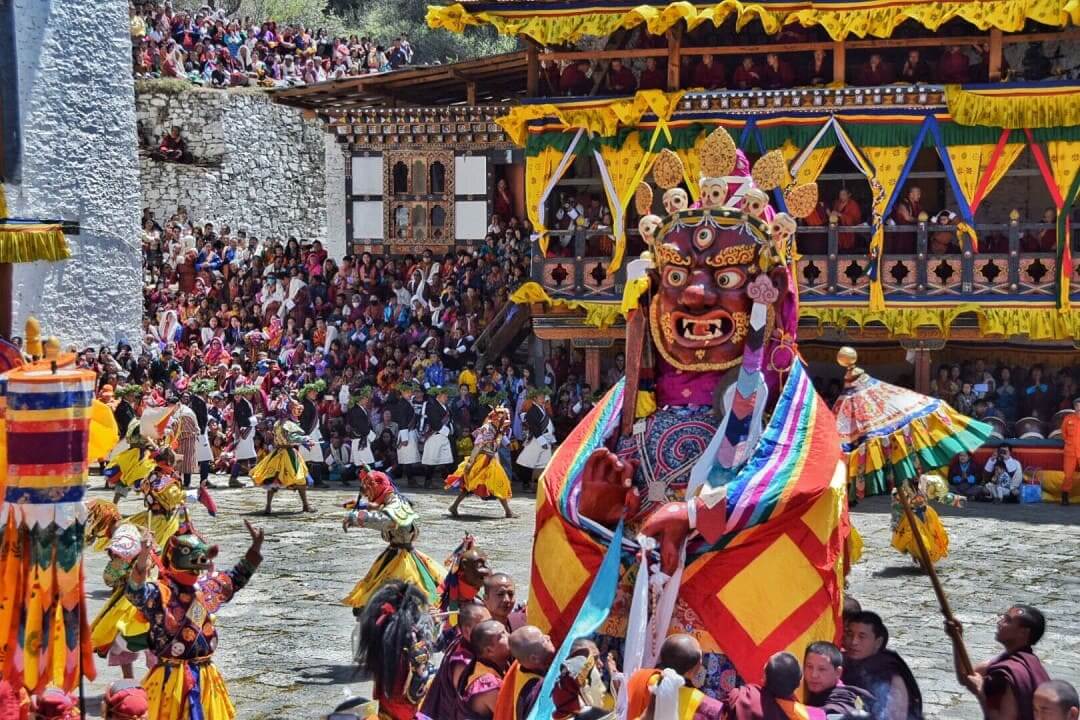
The Demon Lord
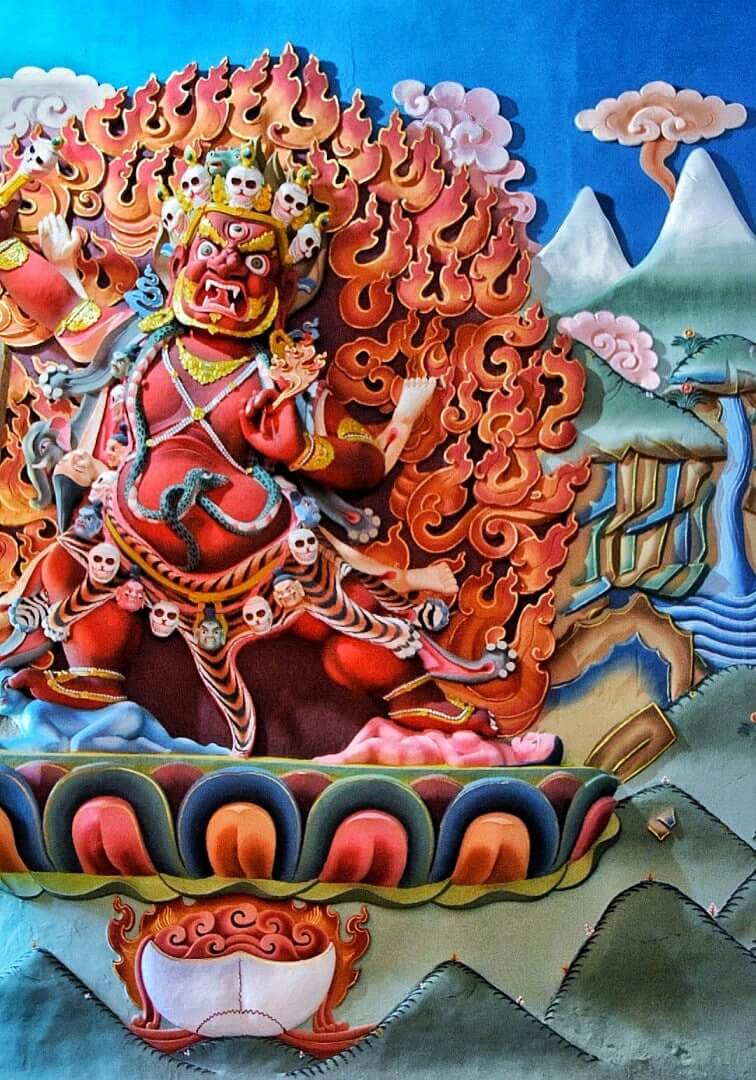
Note humans who dared to defy this beast crushed between his toes, Bhutanese mythology is gory.
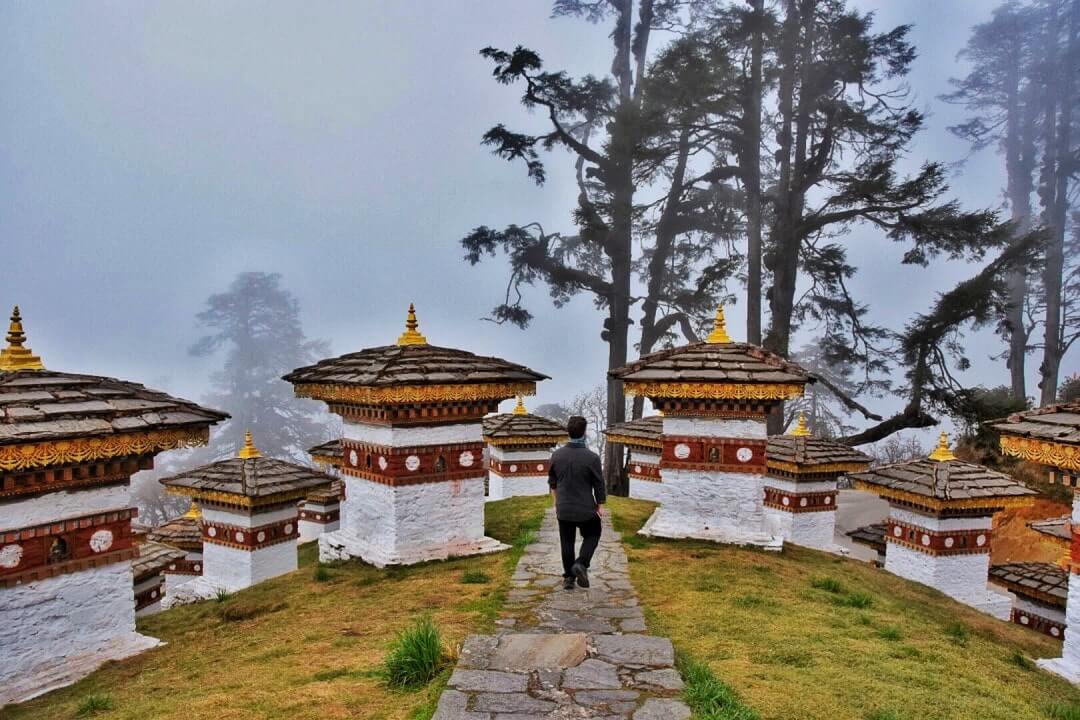
Bhutan has only had one ‘war’ in recent history – an incident in Southern Bhutan between Indian separatists and the Bhutanese army, led by the king himself. Less than ten people were killed and the war was over in twenty four hours. These 108 stupas were built by the Queen Mother to honour the battle.
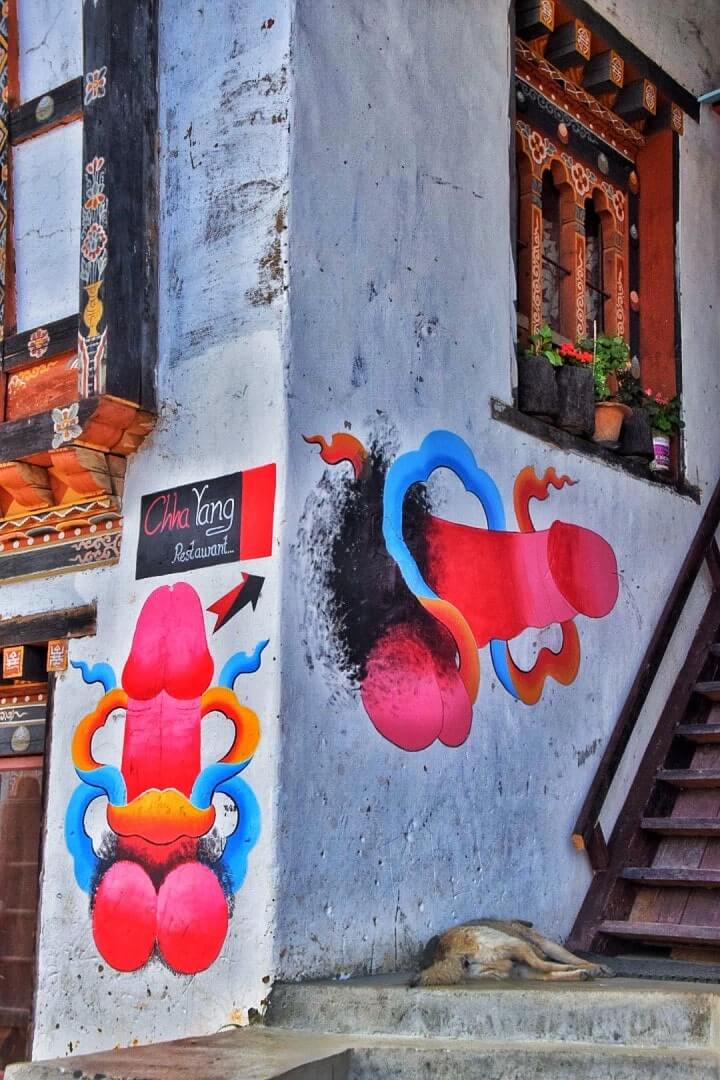
Bhutan has the happiest dogs I have ever seen in Asia; the people here really care for animals and dogs are in much better condition than in neighbouring China or India.
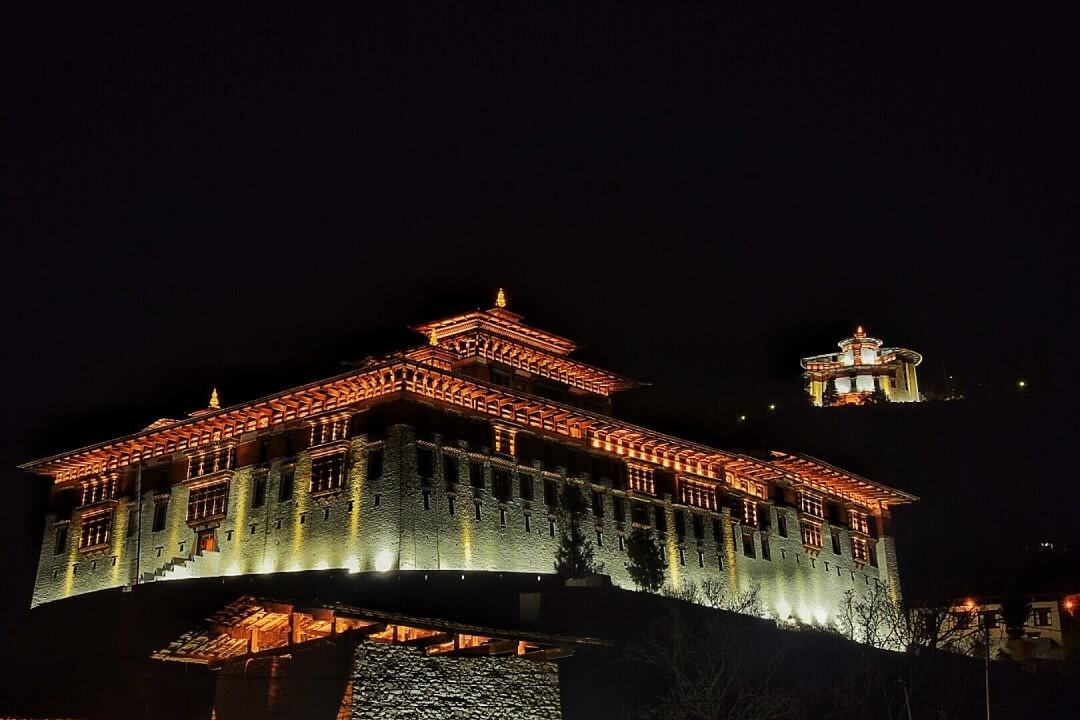
The gorgeous Paro dzong illuminated at night.
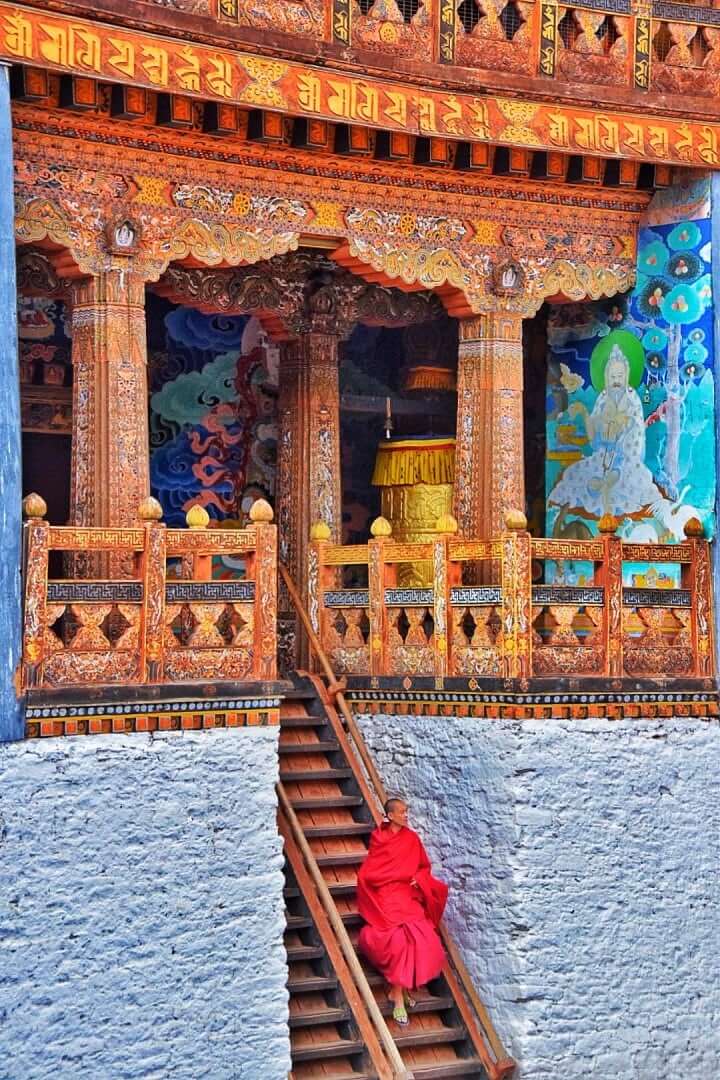
A monk rushes to class…
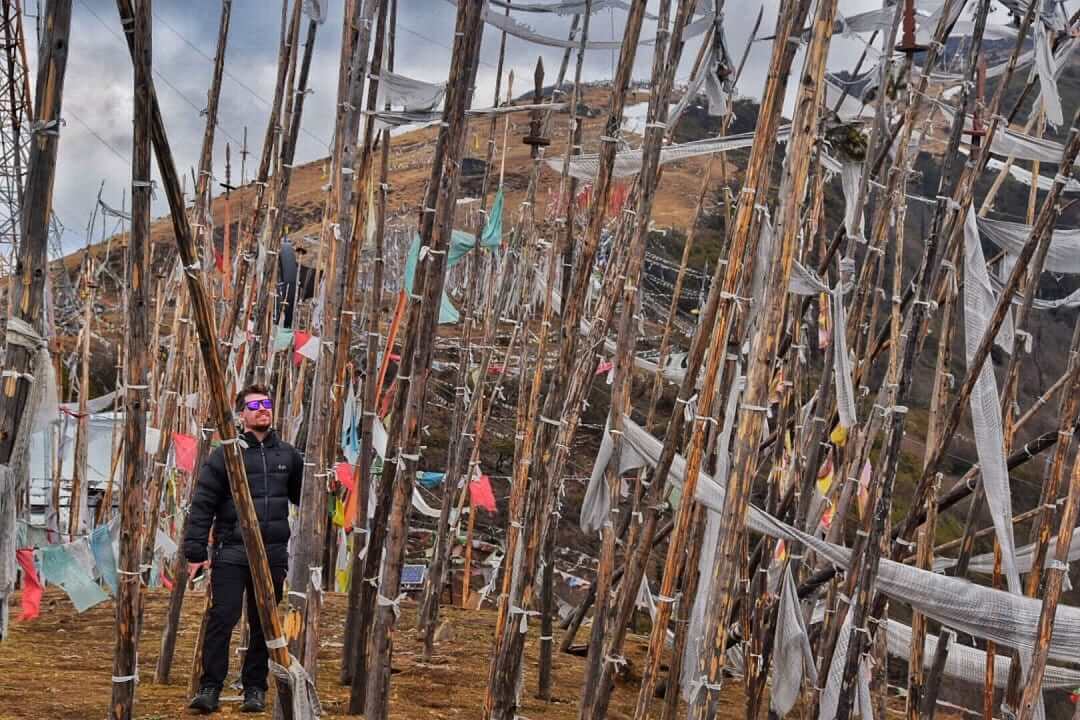
Flapping white prayer flags represent the dead, a flag is placed when a loved one dies so their memory will live on within the mountains of Bhutan.
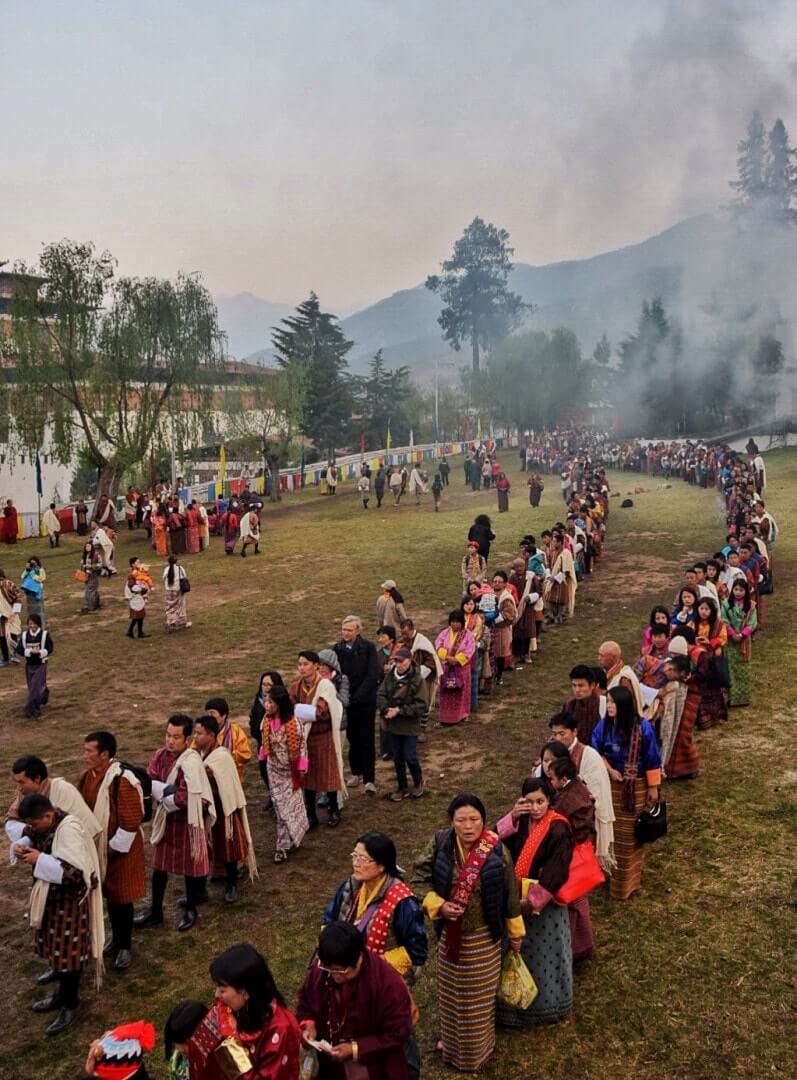
Pilgrims queue for a blessing.
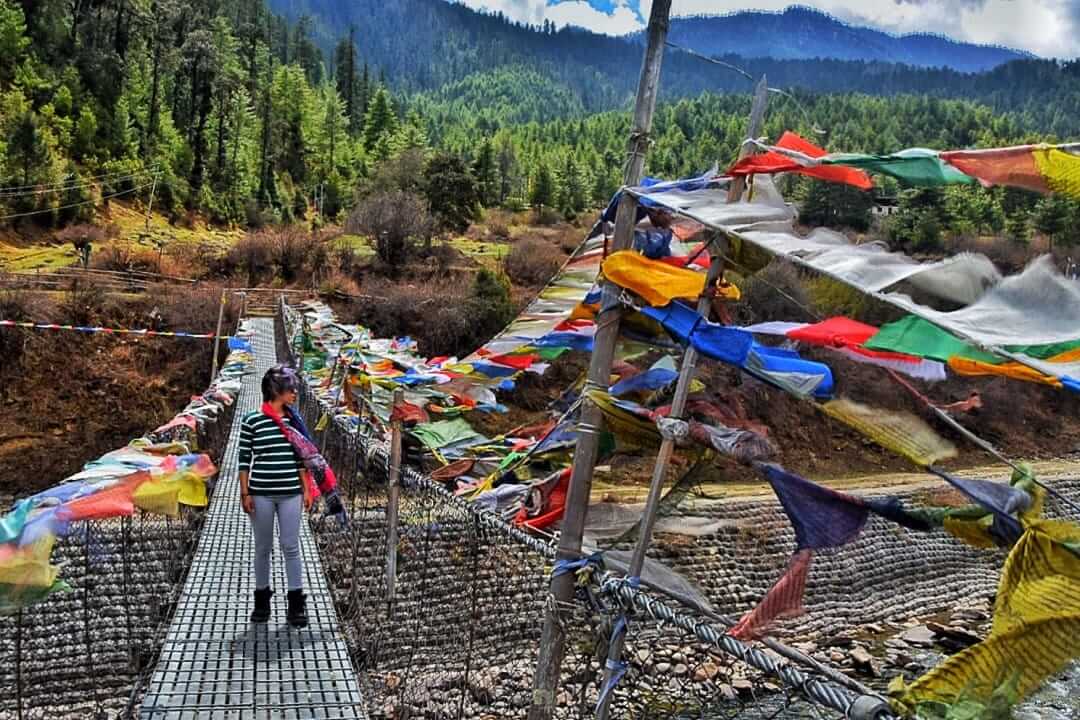
Esme rocking out on one of Bhutan’s many suspension bridges; all of which are draped with flags
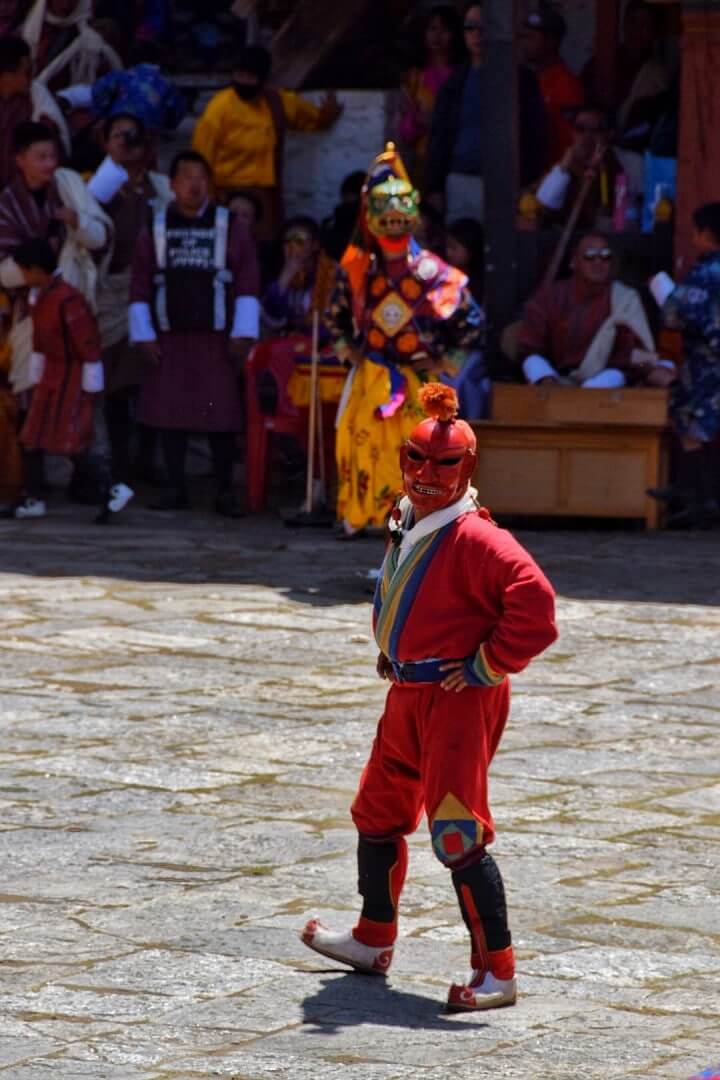
Demons prowl the monastery grounds…
Trekking in Bhutan
But Bhutan isn’t just a land of stunning dzongs and friendly people, this is also one of the greenest countries in the world and the only country which absorbs more carbon than it puts out. Bhutan is a trekker’s wonderland and whilst planning my trip to Bhutan I knew that I simply had to visit Jomolhari Base Camp…
My thoughts on Bhutan
Bhutan is a country unlike any other; a place where even the modern, jeans and gel, teenagers celebrate their culture with a fiery passion. A land where monks still meditate for years in the sacred caves to the East. A country ruled by a monarch who had freely given up his absolute power to usher in democracy. A place where progress is officially measured by happiness, rather than Gross National Product, using the government’s pioneering Gross National Happiness system.
The first carbon-negative country in the world, Bhutan has preserved its mountains, forests and people on its journey to modernise, a feat that is totally unique in the history of this world.
Bhutan is a unique and truly remote destination to visit. You can only travel to Bhutan as part of an organised tour. I’ve never travelled on an organised tour before and it’s not normally something I would be interested in but travelling in Bhutan truly was the experience of a lifetime. My trip to Bhutan was kindly sponsored by Druk Asia who is the leading expert in unique Bhutanese adventures.
Travelling with Druk didn’t feel like a tour; everything was extremely flexible and I had a private car and guide (rather than being on a minibus). My guide, Penjor, quickly became my good friend and we had a great laugh together exploring Bhutan and knocking back a beer or two in the evenings. The guides working for Druk can arrange pretty much anything – whether it’s hiking into the mountains, taking part in a Buddhist ceremony or camping out beneath the stars.
Buy Us a Coffee!
A couple of you lovely readers suggested we set up a tip jar for direct support as an alternative to booking through our links. So we created one!
You can now buy The Broke Backpacker a coffee. If you like and use our content to plan your trips, it’s a much appreciated way to show appreciation 🙂



